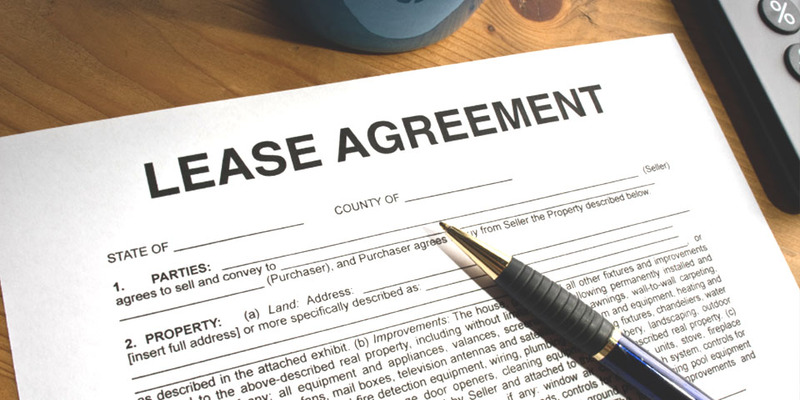Does Lease Termination Affect Credit? Breaking a lease can hurt your credit score if the landlord or property management company reports the unpaid rent or damages to a credit bureau. When you sign a lease for an apartment or rental property, you agree to pay rent for a specific period, usually a year. If you break the lease before the agreed-upon date, you may be responsible for paying the remaining rent owed under the terms of the lease. If you don't pay this rent, the landlord may report the unpaid debt to a credit bureau, which could negatively impact your credit score. Additionally, if you cause damage to the property or leave it in poor condition, the landlord may charge you for the cost of repairs and may also report these charges to a credit bureau. It's important to understand the terms of your lease and the potential consequences of breaking it before you decide to move out before the lease is up.
What Is A Lease?

A lease is a legally binding contract between a landlord and a tenant that defines the duration of the renting period, the quantity of rent that is needed each month, and any regulations or limitations on the use of the property. These conditions and terms of even a lease are detailed in the lease. A rental contract is a legally binding agreement between a landlord as well as a tenant. Whenever you sign a lease, you are committing to paying rent for a certain period of time, which is often one year, as well as abiding by the conditions of the lease. Typically, this commitment is for a period of one year.
To what extent does lease termination affect financial standing? The process of breaking a lease may be tough and irritating, especially if you are unclear of the possible repercussions that breaking the lease might have on your credit score. This can make the procedure much more challenging. This article will explain the possible influence that terminating a lease might have on your credit score, and it will give some tips for avoiding any detrimental effects that could arise as a result of this decision.
How Can Breaking A Lease Hurt Your Credit?
You may be held responsible for the payment of any past-due rent due in line with the lease terms if you terminate a lease before the date previously agreed upon. If you cannot pay the rent this month, the landlord may report the unpaid debt to a credit bureau, which may hurt your credit score. In addition, the landlord may evict you from the property. If you leave the property in poor condition or cause damage, the landlord may charge you for the cost of repairs and may also report these charges to a credit bureau. If you cause damage to the property or leave it in poor condition, the landlord may also report these charges to a credit bureau.
Tips For Minimizing The Negative Impact Of Breaking A Lease:

Discuss the following with your landlord or the firm that manages your property:
- If you are having trouble paying your rent or are considering breaking your lease for any other reason, it is a good idea to talk with your landlord or property management company to see if there is a way to fix the situation without causing damage to your credit.
- You can negotiate a payment plan or devise another satisfactory solution for both parties involved. Put all agreements, terms, and conditions in writing:
- If you choose to terminate your lease, you should ensure that any agreements you get into are documented to safeguard your finances and your credit. This includes any payment plans or arrangements made to cover the cost of damages to the property.
Conclusion
To sum up, if the landlord or property management firm reports your delinquent rent or damages to a credit agency, it might negatively affect your credit score. It's important to understand the terms of your lease and the potential consequences of breaking it before you decide to move out before the lease is up. Suppose you are having difficulty paying your rent or considering breaking your lease for other reasons. In that case, it's a good idea to communicate with your landlord or property management company to see if there is a way to resolve the issue without damaging your credit. You can negotiate a payment plan or find another solution for both parties. If you decide to break your lease, get any agreements in writing to protect yourself and your credit.

Charles Schwab vs. E*TRADE: A Comprehensive 2024 Showdown

The 2023 Top Advantage Plans for Medicare

A Simple Guide to Closing Costs and Closing Fees

Creative Financing In Real Estate

Work for Labor Day Bargains

How an Auto Loan Grace Period Can Save You From Late Fees?

What Is the Consumer Confidence Index: Explain Briefly

Brewing Rebellion: The Boston Tea Party After 250 Years

The Impact of Salary Caps on Sports

The Best NBKC Bank Mortgage Review 2023

Everything About SEC Form 10-Q: Filing, Deadlines, and Key Components
